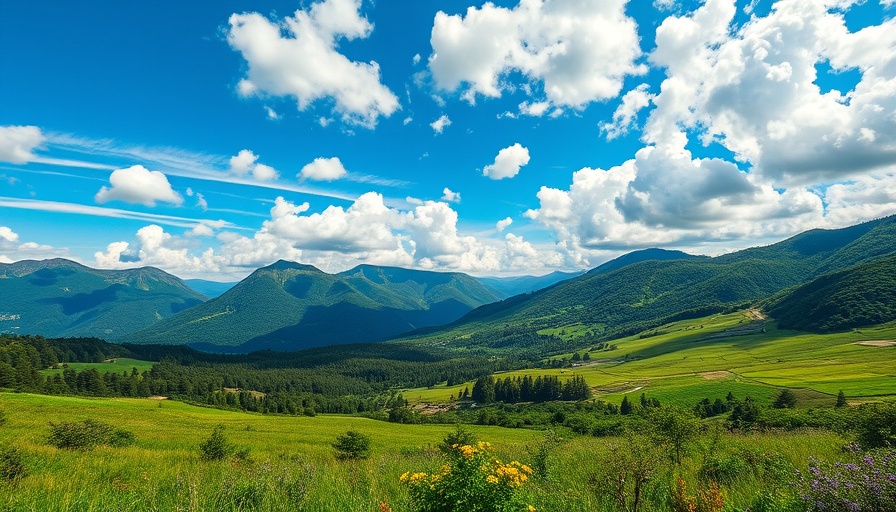
Winter Adventures Await: Embrace the South African Chill
Winter in South Africa isn't merely a season; it’s a beautifully textured invitation to explore the country’s rich landscape and cultural bounty. Unlike the heavy snows of the Northern Hemisphere, South Africa presents a milder version of winter, characterized by inviting warmth around campfires, starlit skies, and delicious culinary feasts. From sipping on rooibos tea in the breathtaking Cederberg Mountains to visiting vibrant towns brimming with history, there are countless unique experiences to savor. Here are nine must-do winter activities that every South African, and indeed every traveler, should experience at least once.
1. Sip Rooibos Tea in the Cederberg Mountains
Wrapping your hands around a steaming mug of rooibos tea is an experience that encapsulates the essence of South Africa. The Cederberg Mountains, known for their ancient rock formations and scenic hikes, offer the perfect backdrop for this cozy pastime. Stay in a remote mountain lodge or charming farm cottage where you can enjoy nature’s beauty while indulging in a local favorite. After your hike, make sure to end your day curled up by a fire with a pot of freshly brewed rooibos, an herbal delight unique to the region.
2. Explore the Majestic Drakensberg
The Drakensberg Mountain Range is another winter wonderland, offering hiking trails suitable for both beginners and seasoned adventurers. Visit the Royal Natal National Park for breathtaking vistas and waterfalls, or embark on longer treks like the Amphitheatre hike that reveals dramatic landscapes. This area is rich in biodiversity and provides opportunities for bird watching, rock climbing, and immersion in local art and culture.
3. Experience the Winelands' Winter Magic
South Africa’s famed Winelands come alive in the winter months, offering visitors a chance to explore charming towns like Stellenbosch and Franschhoek. Winter is the perfect time for indulging in hearty local cuisine paired with exquisite wines. Many estates offer cozy wine-tasting experiences, paired with decadent food and views of the vineyards blanketed in the soft winter mist. Don't miss out on seasonal wine releases that reflect the rich terroir of the region.
4. Marvel at Kruger National Park's Unique Winter Wildlife
While many think of summer as the best time for wildlife viewing, winter in Kruger National Park offers its own unique advantages. The vegetation thins, making it easier to spot elephants, lions, and the elusive leopard. Additionally, the cooler temperatures make for comfortable daytime game drives. The silence of winter nights is a perfect backdrop for stargazing, connecting you to nature in a way that warms the soul.
5. Embrace Adventure with Cape Town's Outdoor Activities
Cape Town is not just a summer destination. Winter brings a different kind of thrill with activities like surfing at Muizenberg and hiking up the iconic Table Mountain. The city's beaches, while cooler, offer spectacular views, and fewer crowds allow for a more peaceful experience. Don’t forget to warm up with some hot chocolate or try the city’s diverse culinary scene that truly comes alive during the winter months.
6. Enjoy a Cozy Fire at a Country Lodge
A quintessential winter experience in South Africa is retreating to a country lodge where warmth is found around every corner. Whether it’s a fireplace in your room or cozy communal areas, the atmosphere invites relaxation. Look for lodges that serve traditional South African dishes like hearty stews or braais, which are even more comforting on chilly nights.
7. Attend a Winter Festival
South Africa’s winter season is dotted with festivals celebrating local culture, music, and food. From the Cape Town International Jazz Festival to smaller regional events showcasing local talent, participating in these festivities allows travelers to connect with South African culture in an engaging way. Experiencing live performances while indulging in traditional foods creates unforgettable memories.
8. Explore the Rich History of the Karoo
The Karoo, known for its stark beauty, offers a unique winter experience. A self-drive heritage road trip through this region allows you to explore its fascinating history, from fossil digs to charming towns like Graaff-Reinet. Make stops at historical sites, museums, and sample local dishes, immersing yourself in the narratives that shape this rugged region.
9. Rejuvenate at Natural Hot Springs
What could be better than soaking in natural hot springs during the winter? South Africa is home to several thermal springs, such as those in Warmbaths or the historic Baths in Magaliesburg. Enjoy the therapeutic benefits of these natural wonders, surrounded by lush landscapes, making for a pure sensory experience.
Plan Your Perfect South African Winter
As you plan your South African adventure, keep these activities in mind for a rich, diverse experience that captures the heart of winter in this vibrant country. From daring adventures to intimate cultural connections, there’s a wealth of experiences awaiting you. Whether you’re a local or a traveler seeking to explore the wonders of South Africa, these winter delights promise to create memories that last a lifetime.
 Add Row
Add Row  Add
Add 




Write A Comment